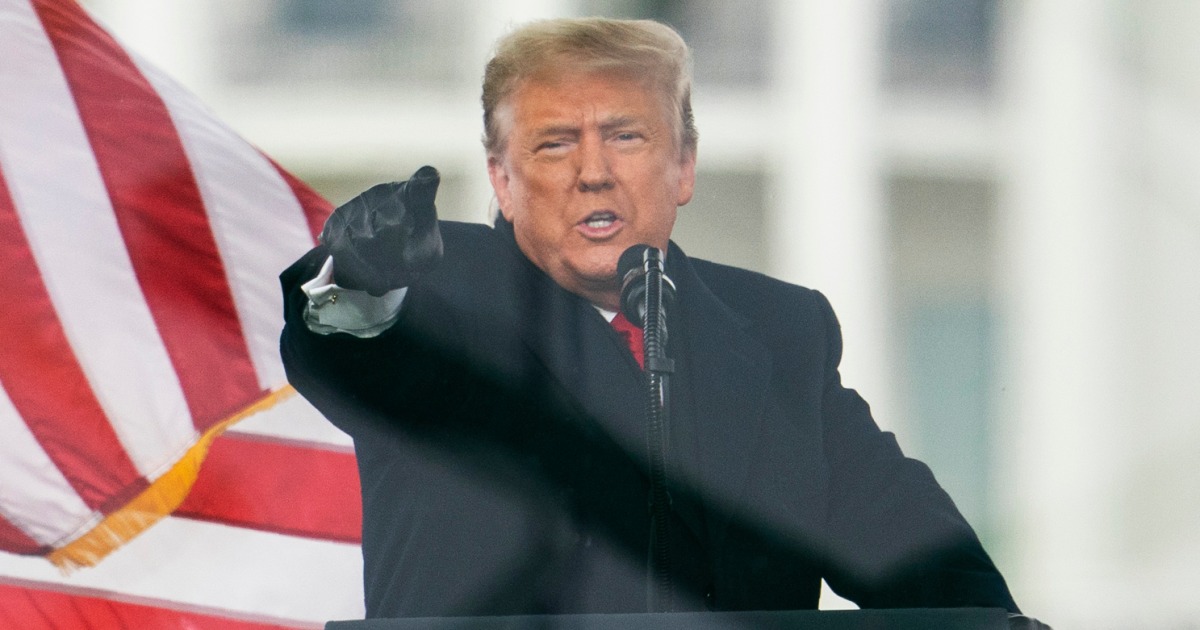
WASHINGTON — A federal judge indicated Wednesday that then-President Donald Trump’s remarks on Jan. 6 telling a crowd to “fight like hell” before the Capitol attack could have signaled to his supporters that he wanted them “to do something more” than just protest.
In a court order for the case against Jan. 6 defendant Alexander Sheppard, U.S. District Court Judge John Bates ruled that Sheppard could not raise the “public authority” defense at trial after his lawyer argued Trump had authorized his client’s actions at the Capitol that day.
Bates, who was appointed to the court by former President George W. Bush, rejected that argument, ruling that “President Trump neither stated nor implied that entering the restricted area of the Capitol grounds and the Capitol building or impeding the certification of the electoral vote was lawful,” and therefore a public authority defense was not viable.
“These words only encourage those at the rally to march to the Capitol — nothing more — and do not address legality at all. But, although his express words only mention walking down Pennsylvania Avenue to the Capitol, one might conclude that the context implies that he was urging protestors to do something more— perhaps to enter the Capitol building and stop the certification,” Bates wrote.
In a footnote, Bates noted that his ruling was not out of step with the Jan. 6 committee’s final report, which concluded that Trump acted “corruptly” because he knew stopping the certification was unlawful.
His ruling was the first to cite the House panel’s report since it was made public last week.
Bates further noted that phrases cited by the committee, such as “fight like hell,” could “signal to protesters that entering the Capitol and stopping the certification would be unlawful.”
“Thus, the conclusions reached here—that even if protesters believed they were following orders, they were not misled about the legality of their actions and thus fall outside the scope of any public authority defense — is consistent with the Select Committee’s findings,” Bates wrote.
He went on to say there was “simply no indication” that Trump informed the crowd that going into the Capitol would be legal.
“His speech simply suggests that it would be an act of ‘boldness’ to ‘stop the steal,'” Bates wrote.
Several other defendants have tried to raise the public authority defense, including Danny Rodriquez, the MAGA-hatted Jan. 6 rioter who drove a stun gun into the neck of now-former Metropolitan Police Department officer Michael Fanone.
The strategy of blaming Trump has not proven effective at trial. Dustin Thompson, who was convicted on all counts, had told a jury he was seeking Trump’s “approval” and that he thought he was “following presidential orders.” Thompson was sentenced to three years in federal prison for stealing a coat rack and a bottle of liquor while storming the Capitol.
In a filing earlier this month in the Sheppard case, the Justice Department argued it was “objectively unreasonable to conclude that President Trump or any other Executive Branch official could authorize citizens to engage in violent or assaultive conduct toward law enforcement officers and interfere with the Electoral College proceedings that were being conducted” and that Trump’s speech did not advise Sheppard that his conduct was legal.
Source: | This article originally belongs to Nbcnews.com










